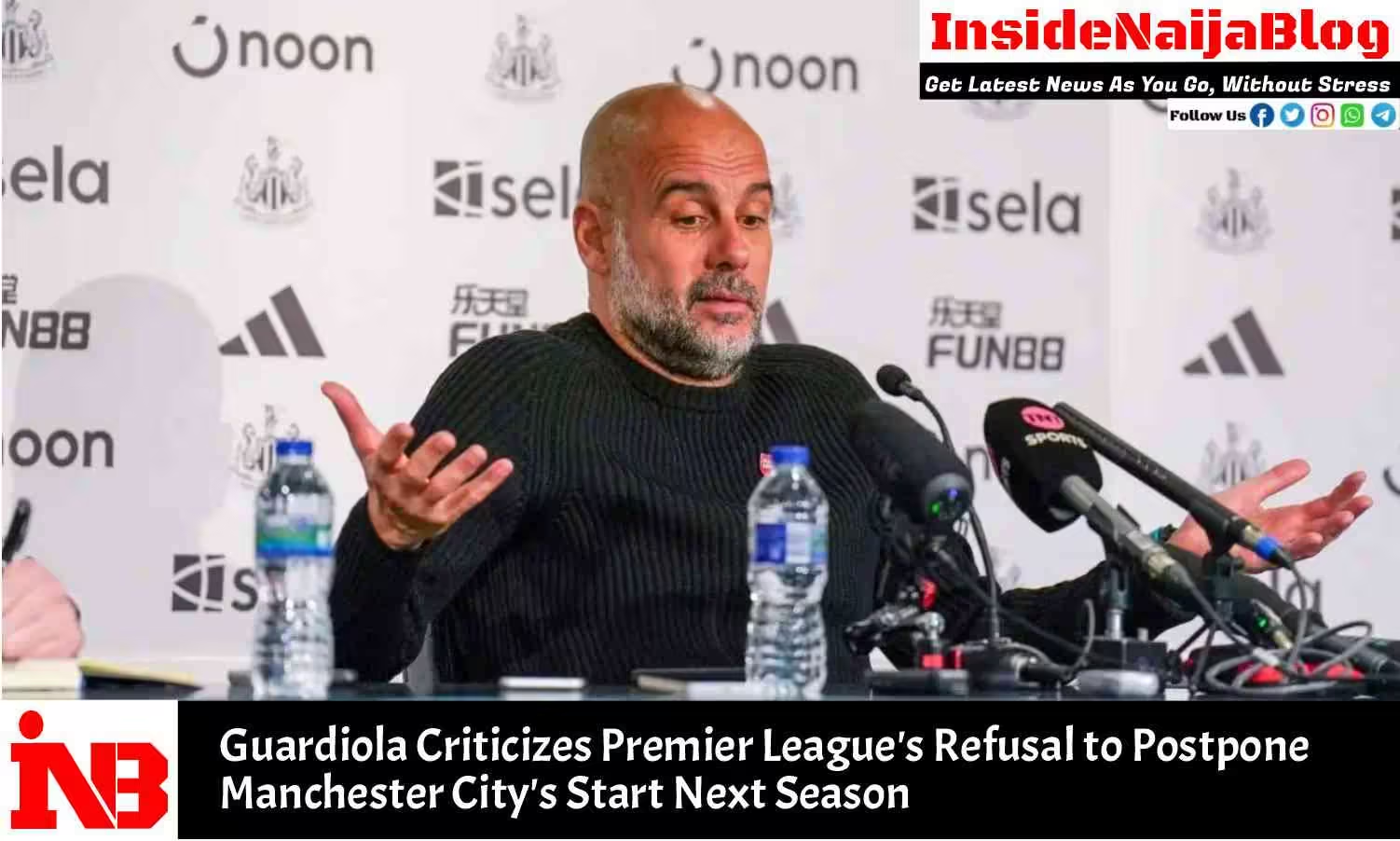In a recent press conference, Manchester City manager Pep Guardiola has voiced his deep frustration over the Premier League’s refusal to accommodate the club’s request to delay the start of the 2025-26 season. The request stems from City’s anticipated participation in the FIFA Club World Cup, which is set to take place in the United States next summer. Guardiola expressed concern that the compressed schedule could significantly impact player fitness and overall team performance.
The crux of the issue lies in the demanding timeline that City faces if they progress deep into the Club World Cup. Should the team reach the final, their season could extend as far as July 13. This scenario would leave them with a mere four-week gap to facilitate player holidays and prepare for the start of the Premier League season, which is expected to commence on either August 9 or 16. Given the physical and mental toll that a lengthy season can exert on players, Guardiola argued that this insufficient break could lead to heightened risks of injury and burnout, especially as the team aims to maintain their competitive edge.
Guardiola’s concerns are compounded by the recent loss of influential Spain midfielder Rodri, who will miss the remainder of the current season due to a knee injury he sustained in a match against Arsenal. The manager has emphasized that the club is already stretched thin in terms of player availability, and an intensified schedule could exacerbate these challenges. “We are trying to manage our squad carefully, but we are also aware that the demands of modern football can be overwhelming,” Guardiola noted.
In light of these challenges, City formally requested that the Premier League postpone their opening fixtures to provide players with a necessary recovery period after the World Cup. Guardiola mentioned that the club had proposed delaying their first or second games by one to three weeks, aiming to grant players additional rest following the tournament. However, he expressed disappointment that their plea has largely gone unanswered. “The Premier League has not allowed us to postpone – and Chelsea, I think, all the teams that will go to the World Cup – the first two games to have more recovery. Thank you so much! They don’t postpone these games,” he stated, underscoring the frustration felt within the club.
The stakes are high for Manchester City, especially considering their strained relationship with the Premier League. The club is currently embroiled in a legal battle, facing 115 charges of alleged financial misconduct, including accusations of failing to cooperate with investigations. This tumultuous backdrop adds an extra layer of pressure to City as they navigate both competitive and administrative challenges.
While the Premier League has not publicly addressed City’s request, reports indicate that initial discussions about the possibility of postponing fixtures were held. However, it appears that City has not received any indication that their application would be granted. Guardiola lamented, “It’s difficult to understand why the Premier League would not prioritize player welfare in this instance. We’re not just talking about football; we’re talking about the health and longevity of the athletes who entertain millions.”
As the Premier League champions look ahead to the coming season, the implications of their demanding schedule are significant. The potential for a congested fixture list, coupled with the existing injury concerns, raises questions about how Guardiola will manage his squad effectively. “We have to be smart about how we rotate players and manage their workloads. We can’t afford to have key players sidelined for extended periods,” he added.
Moreover, the community of Manchester City supporters will be keenly watching how the club addresses these challenges. The fans have been known for their unwavering loyalty, and they will undoubtedly hope that the team can navigate this period successfully. Guardiola’s statements reflect a broader concern within the football community regarding player welfare, especially as clubs face increasingly packed schedules due to various competitions.
Looking forward, it remains to be seen how Manchester City will respond to the challenges presented by the upcoming season. The balance between maintaining a competitive edge while ensuring player health is a delicate one. Guardiola’s frustration with the Premier League serves as a reminder that the conversation around player welfare is becoming increasingly critical in the world of elite football.
As the situation evolves, all eyes will be on Manchester City to see how they manage their resources, navigate their relationship with the Premier League, and ultimately aim to secure success both domestically and internationally. With the stakes so high, Guardiola’s commitment to his players and the club’s vision will be put to the test in the months to come.



